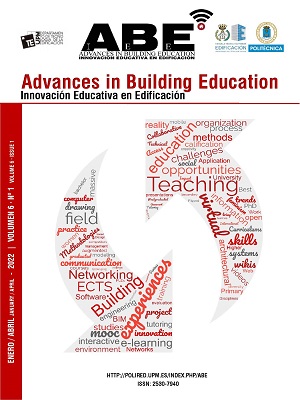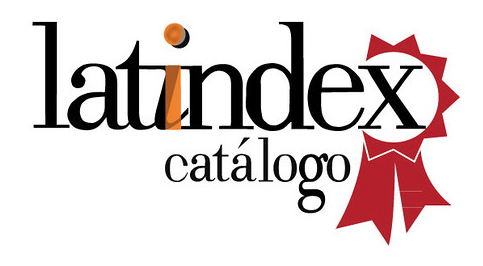Tips for teaching online as covid 19 took hold
DOI:
https://doi.org/10.20868/abe.2022.1.4814Palabras clave:
Teaching online, COVID-19, Educational Innovation at the University, New Challenges for Higher EducationResumen
Spanish Cabinet declared on Saturday 14th of March 2020, state of alarm in Span to slow coronavirus COVID-19 spread and the universities were closed. Later, lecturers were forced to turn to remote teaching in a short period of time. The transition required time and patience to learn the technology, i. e. Microsoft Teams, and identify the best teaching tactics for our chemistry and construction materials. Every day, we gave lecture with new contents and exercises by using Microsoft Teams. In our opinion, there is an essential tip: seek continuous feedback from students. Students need questions to know what they have learnt. In addition, we asked for feedback to improve the class and to make sure they understood the knowledge base. We should have into account that the biggest risk is that we could become a talking instrument teaching concepts that students are not following. In this case, students give up.Descargas
Referencias
Spanish Royal Decree 463/2020, of March 14th, 2020, declaring the state of alarm in Spain to manage the health crisis situation caused by COVID-19. "BOE" no. 67, March 14, 2020. Pages 25390-25400 (11 pp.). Section: I. General Provisions. Department: Ministry of the Presidency, Relations with the Courts and Democratic Memory. Reference: BOE-A-2020-3692.
Descargas
Publicado
Número
Sección
Licencia
ABE (Advances in Building Education / Innovación Educativa en la Edificación) no aplica cargo alguno a los autores por procesar o publicar un artículo y provee acceso abierto (Open Access) inmediato a su contenido. Todo el contenido está disponible gratuitamente sin cargo para el usuario o su institución. Se permite a los usuarios leer, descargar, copiar, distribuir, imprimir, buscar o vincular a los textos completos de los artículos, o utilizarlos para cualquier otro propósito lícito, sin pedir permiso previo del editor o el autor. Esto está de acuerdo con la definición de acceso abierto de la BOAI.
1. Los autores conservan los derechos de autor y garantizan a la revista el derecho de una Licencia Creative Commons Atribución / No Comercial / No Derivadas 4.0 Internacional (CC BY NC ND) que permite a otros compartir el trabajo con un reconocimiento de la autoría y uso no comercial.
2. Los autores pueden establecer por separado acuerdos adicionales para la distribución no exclusiva de la versión de la obra publicada en la revista (por ejemplo, situarlo en un repositorio institucional o publicarlo en un libro).
Salvo indicación contraria, todos los contenidos de la edición electrónica se distribuyen bajo una licencia de uso y distribución “Creative Commons".














